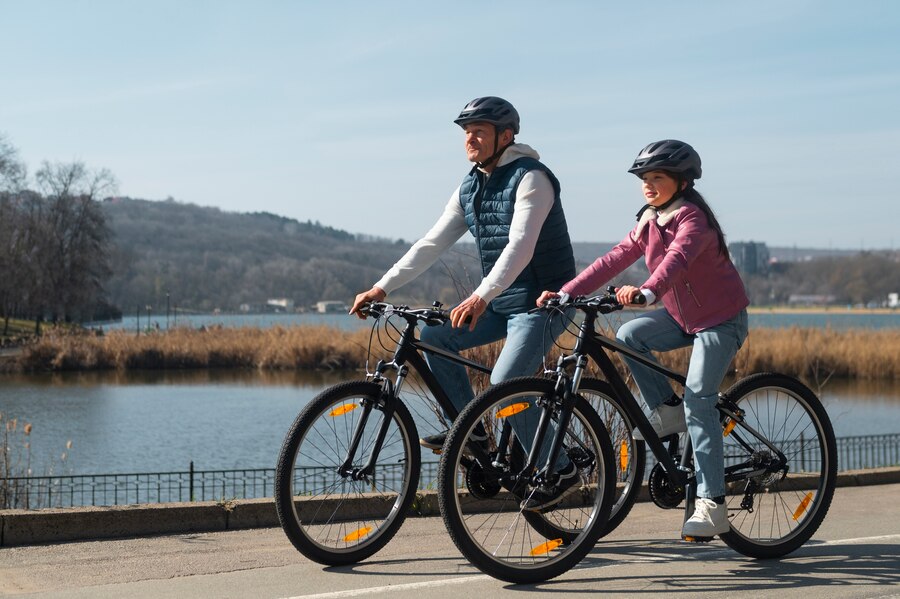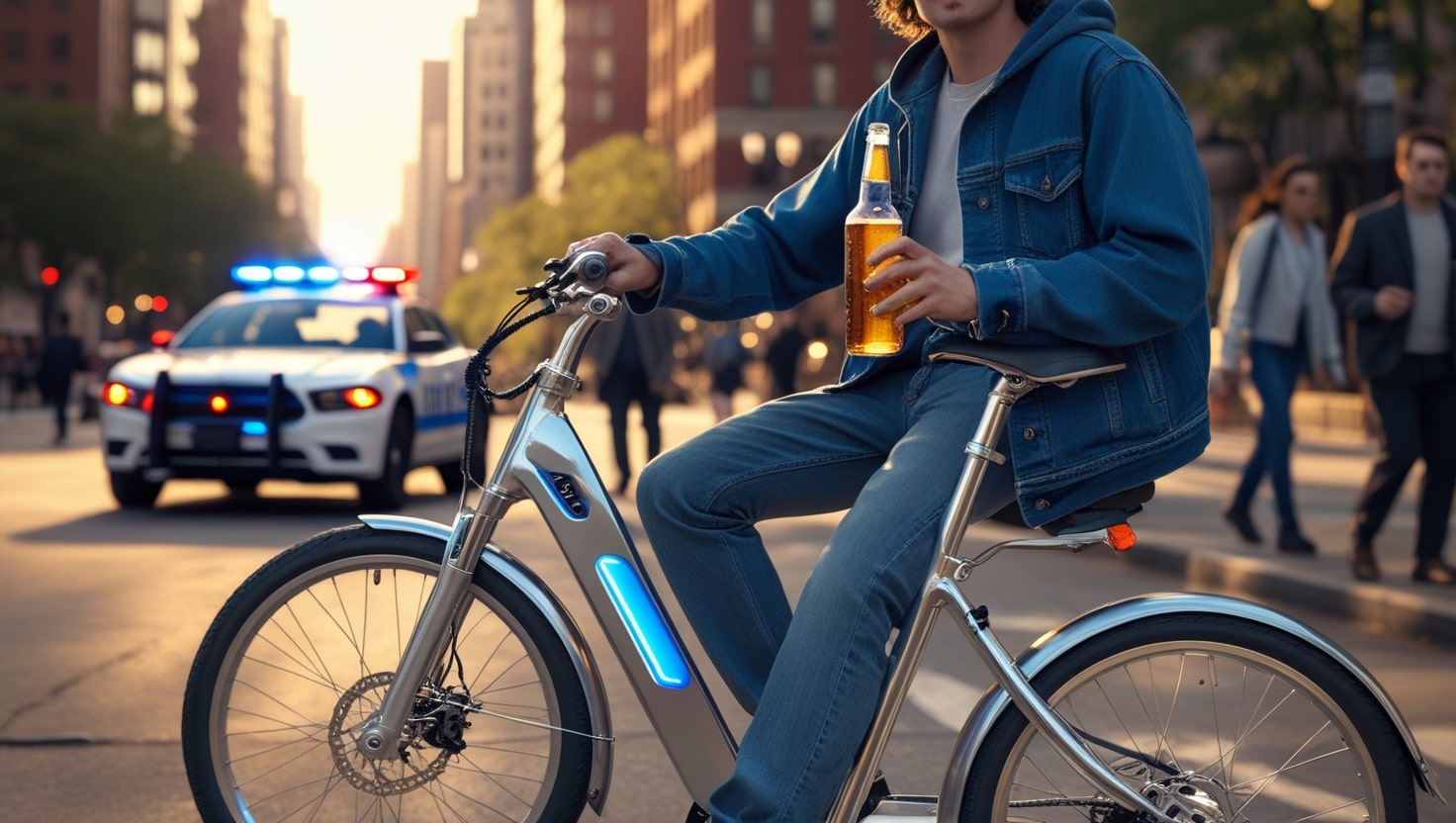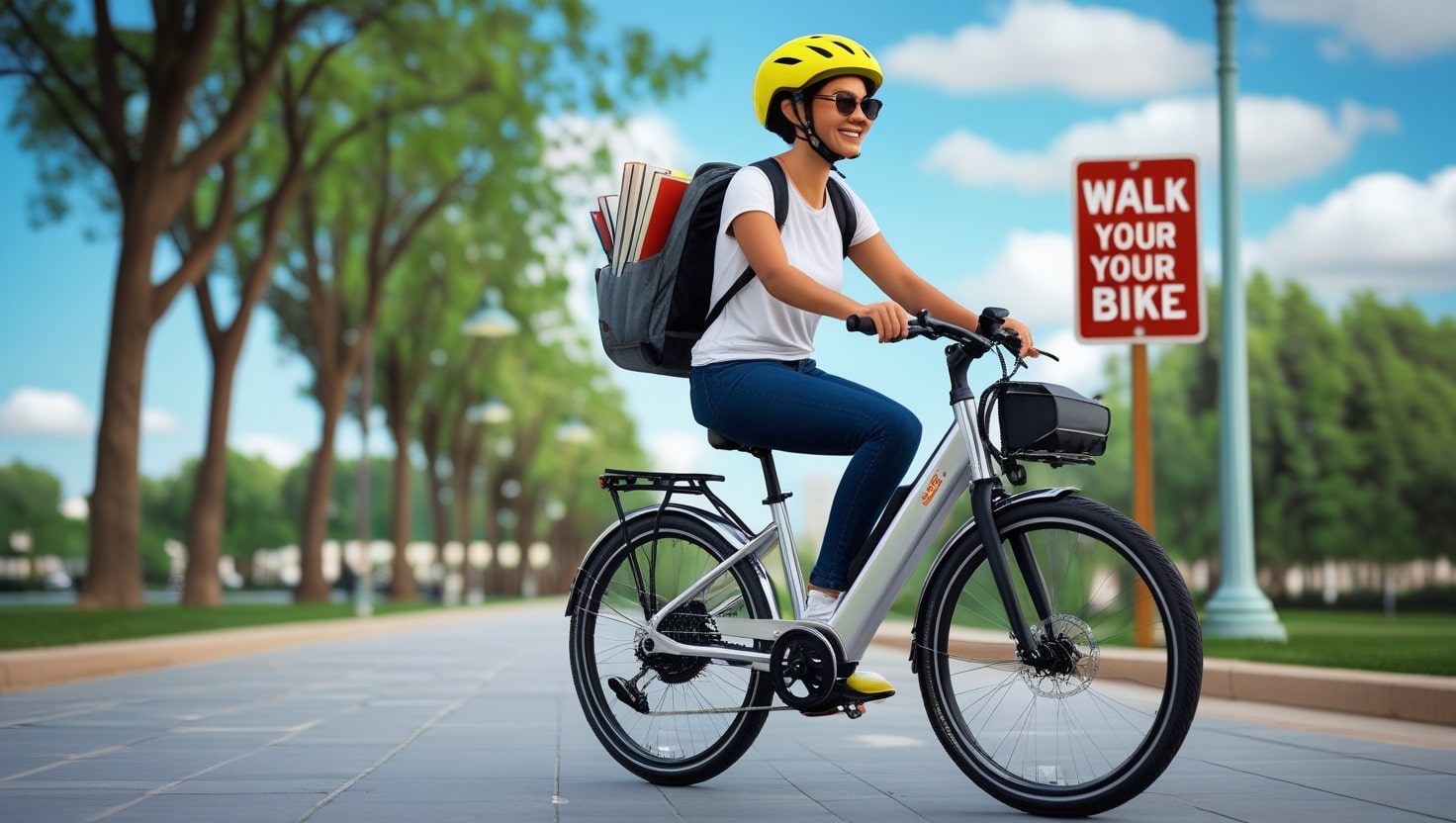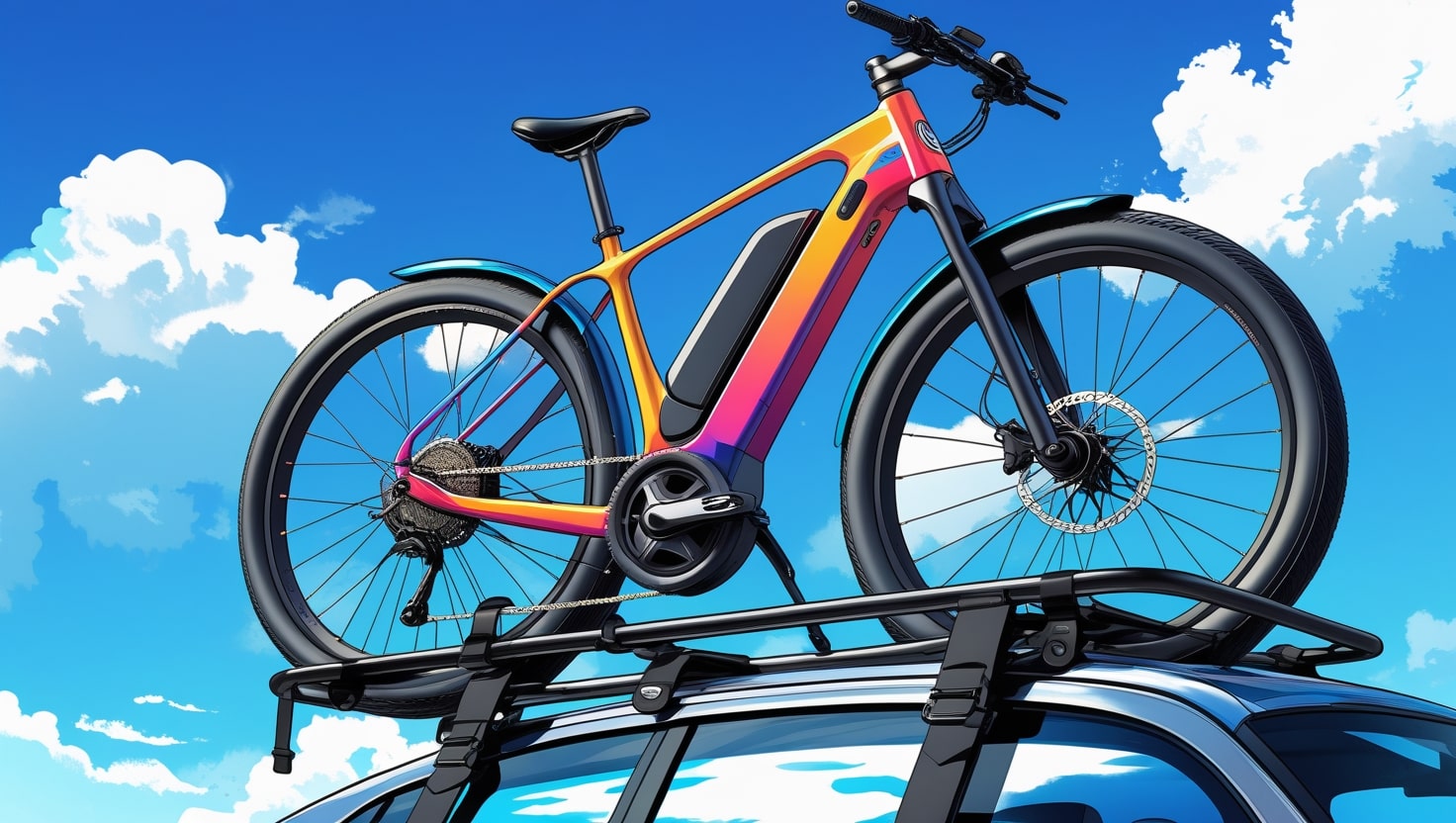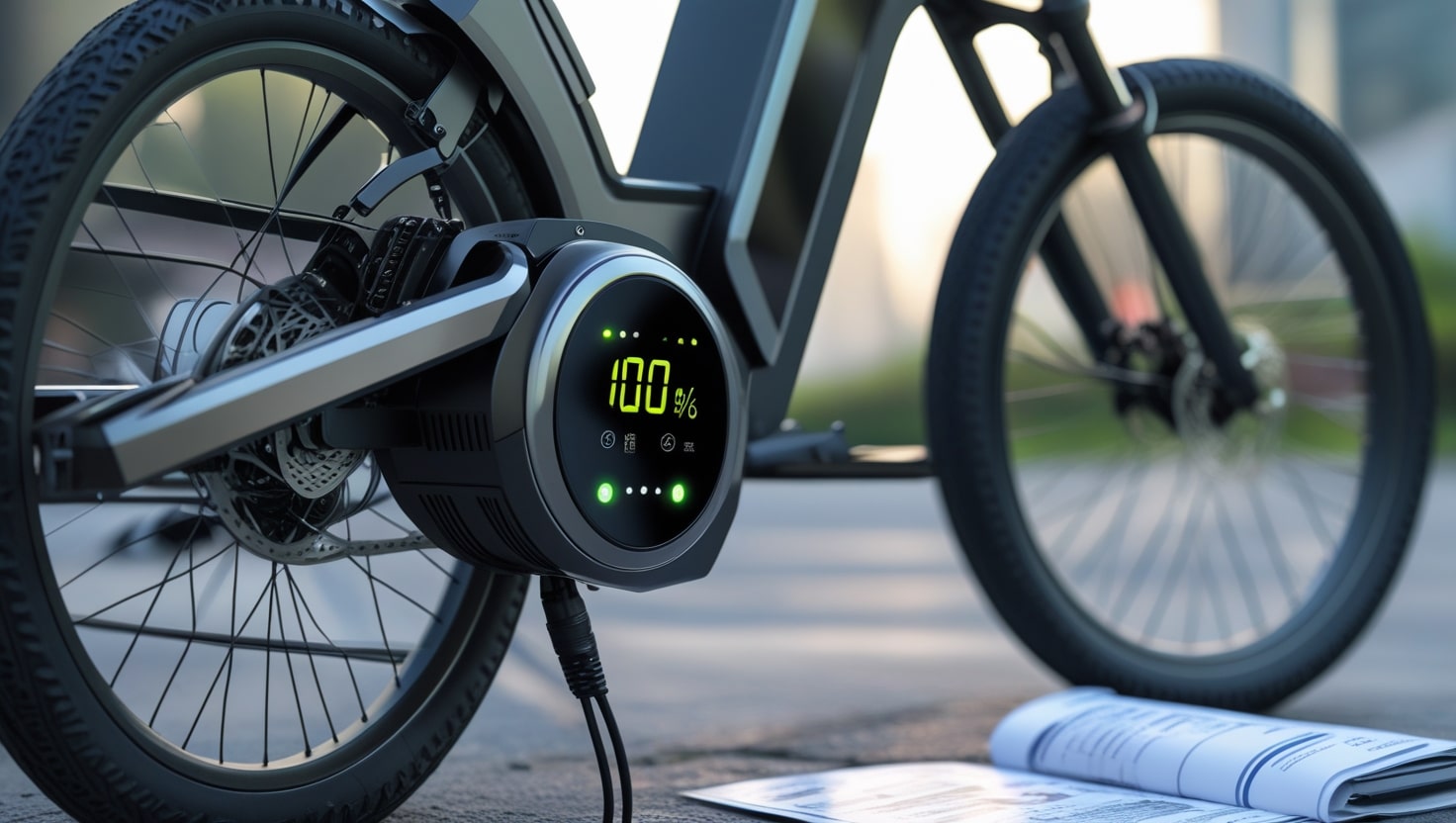Riding electric bikes in Kansas has grown in popularity as they provide riders with an eco-friendly and efficient way to commute, enjoy leisure rides to the store, or recreate outdoors. When exploring Kansas, understanding ebike rules is key to ensuring a safe and responsible cycling experience.
This guide offers details about Kansas ebike laws, helping you stay out of trouble and make the most of your rides. With a focus on electric bike laws and their practical reference, this article simplifies what every rider needs to know about enjoying their journeys responsibly.
The Foundation of the Kansas Ebike Laws
Kansas has adopted universal classes to regulate electric bikes, ensuring safety and clarity for all riders. These classes are based on the type of assistance the motor provides and the maximum speed it can achieve. To meet the requirements, every ebike must have a saddle, seat, fully operational pedals, and an electric motor with less than 750 watts. Ebikes manufactured after January 2023 must display a label showing the classification number, top assisted speed, and motor wattage, helping riders and authorities understand the bike’s specifications.
For individuals under 16 years old, operating a Class 3 bicycle is not allowed. However, they can ride as passengers on bikes designed to carry more than one person. Below are the three recognized classes of ebikes in Kansas:
- Class 1: A bicycle equipped with a motor that provides assistance only while the rider is pedaling and ceases at 20 mph.
- Class 2: A bicycle equipped with a throttle-actuated motor, stopping assistance at 20 mph.
- Class 3: A bicycle equipped with a motor that provides assistance during pedaling and ceases at 28 mph.
Do you need a license, insurance or registration in Kansas?
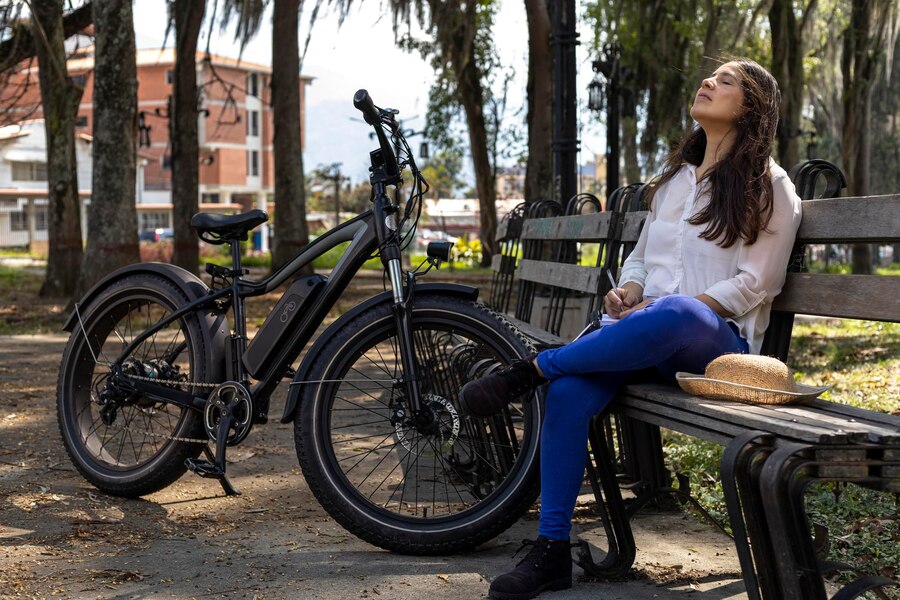
No, you do not need a license to operate an electric bike in Kansas, as outlined by Kansas statutes (Kan. Stat. §8-1489, §8-1592B). Ebikes are regulated similarly to traditional bikes, meaning they are not subject to registration, licensing, or insurance requirements like motor vehicles. This makes ebikes more affordable since their general cost is lower without additional fees, improving accessibility for anyone interested in owning one. Aside from the bike itself, there’s nothing extra to apply for, making it easier for new riders to get started.
Street Legal Electric Bike Guidelines
Under Kansas statutes, electric bikes are generally allowed on bicycle and multi-use paths. However, state laws grant local authorities the power to restrict their use on certain paths. If you are unsure about the rules in your area, it’s best to check with your town, city, or county for specific local regulations.
eMTB GUIDELINES
- Access varies for e-mountain bikes (eMTBs) on federal, state, county, and local trails.
- Any natural surface trail designated for both motorized and non-motorized uses is generally allowed for eMTBs.
- eMTBs are not allowed on trails managed solely for non-motorized activities.
- Always ride legally on authorized trails and avoid areas with unclear rules to show that mountain bikers are responsible users.
- If in doubt, consult the local land manager about specific trails, as land rules may change frequently.
Trail Riding with Electric Bikes in Kansas
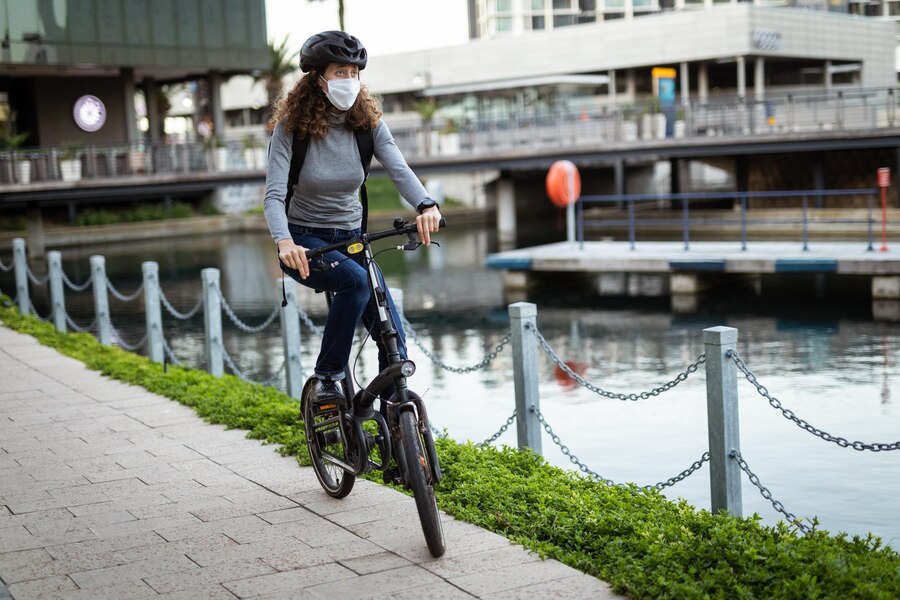
For trail lovers, Kansas offers great options for enjoying rides on electric mountain bikes (eMTBs). Check out these standout trails:
- The Switchgrass Epic Mountain Bike Singletrack Trail offers 22 miles of scenic landscapes and varied trails, perfect for adventure seekers.
- The Turkey Trail in Elkhart is a 10-mile ride, ideal for those wanting a shorter journey.
- For a more extensive route, try the Ride 2 Paradise 40 Miler, which provides an unforgettable experience.
- The Russell Trail stretches 43 miles, making it a great choice for seasoned riders looking to explore more.
KANSAS EBIKE LAWS FOR TRAILS
Generally, eMTBs are allowed on natural surface trails designated for both motorized and non-motorized activities. However, access can vary considerably among federal, state, county, and local trail systems:
LOCAL: Consult your local land management agency for specific rules regarding e-bikes and trail access.
STATE: The Kansas Department of Wildlife & Parks allows Class 1 and Class 2 e-bikes wherever bicycles are permitted. For the latest updates, contact the department for accurate information.
FEDERAL: The U.S. Forest Service classifies eMTBs as motorized vehicles, allowing them on designated motorized trails. A large portion of public lands used for recreation in Kansas is under the jurisdiction of the Eastern Regional Office. Reach out for detailed guidelines.
What are the restrictions on Motor power or throttle in Kansas?
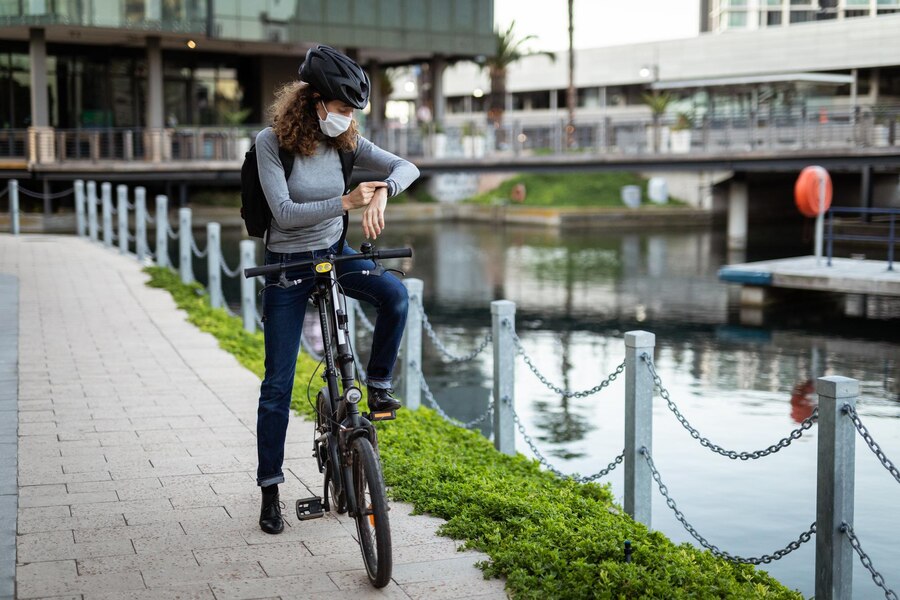
The state of Kansas has clear rules for ebikes, stating that their motor must be rated at less than 1000w. Kansas determines these limits to regulate performance and promote responsible riding.
Are there any age restrictions to riding an electric bike in Kansas?
In Kansas, a person under 16 cannot operate a Class 3 electric bicycle, but they are allowed to ride as a passenger if the bike is designed for it.
What are the laws around helmets in Kansas?
In Kansas, any person under the age of 18 must wear a helmet when riding an electric bike.
With an e-bike, bicyclists can ride more often, farther, and for more trips.

In the U.S., e-bikes have been growing in popularity, but in many states, they are still regulated under antiquated laws originally meant for combustion engine vehicles like mopeds and scooters. Organizations like ChiceBike are working to clarify state laws to make sure low-speed electric bicycles are treated like traditional human-powered bicycles. The objective is to create consistency while ensuring safety for everyone on the road.
Electric bicycles are designed to be just as safe as regular bicycles, and they often provide a benefit to riders who might feel discouraged from riding due to age, physical fitness, disability, or simple convenience.
Wrapping Things Up
Whether you’re commuting through city streets or exploring scenic trails, knowing and adhering to Kansas ebike laws is essential for a safe and enjoyable experience. By staying informed and being respectful of local regulations, ebike riders can contribute positively to their community’s mobility and recreational landscape.
When in doubt about specific rules or new trails, make sure to reach out to local authorities or land managers for the latest information and guidance. This ensures every ride is safe, fun, and leaves a positive impression. Happy riding!
FAQs
Do you need a license to drive an electric bike in Kansas?
No, you don’t need a license to ride an electric bike in Kansas. E-bikes are treated like traditional bicycles under state law, meaning there’s no need for registration, licensing, or insurance. This makes e-bikes a convenient and accessible option for riders of all kinds without extra requirements.
What are the different classes of electric bikes recognized in Kansas?
- Class 1: Kansas recognizes this class for electric bikes that provide assistance only while pedaling and stop at 20 mph.
- Class 2: These are throttle-actuated bikes, offering assistance that also stops at 20 mph.
- Class 3: Designed for faster rides, these bikes assist while pedaling up to 28 mph but are not operable by riders under 16.
Can electric bikes be used on public roads and bike paths?
Yes, electric bikes are allowed on public roads and multi-use paths, much like traditional bicycles. However, local governments may restrict their use on specific paths, so it’s always a good idea to check local regulations before heading out.
Are there any restrictions for riding electric bikes on trails in Kansas?
Electric bikes are generally allowed on natural surface trails that support both motorized and non-motorized uses. However, some trails managed specifically for non-motorized activities may prohibit their use. To avoid issues, always verify local rules and confirm access permissions before heading out for a ride.

